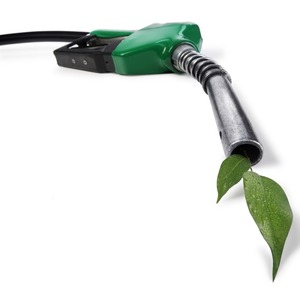Michigan bill aims to create clean fuel, clean energy standards

April 13, 2023
BY Erin Krueger
Michigan state democrats, led by Senate Majority Floor Leader Sam Singh and Sen. Sue Shink, on April 12 introduced the Clean Energy Future Plan, a bill package that aims to implement a wide range of clean energy provisions, including a clean fuel standard (CFS) and a clean energy standard.
The CFS program created by the legislation would aim to reduce the carbon intensity of the state’s transportation fuels by 25 percent by the end of 2035.
Advertisement
The legislative package would also set a goal to phase out coal-fired electricity generating plants by 2030 and require utilities to make progress toward the elimination of greenhouse (GHG) emissions from power generation by 2035. It would also establish a standard requiring 100 percent clean energy by 2035.
Other components of the package include provisions to encourage utilities to become more energy efficient, expand the purview of the Michigan Public Service Commission, encourage farmers to rent land for solar operations, and support the decarbonization of homes and businesses. Additional bills are expected to be added to the package, including one to promote the purchase and use of electric vehicles.
Clean Fuels Michigan has spoken out in support of the Clean Energy Future Plan, noting that the Michigan Clean Fuel Standard Coalition will work with legislature to implement a CFS that is technology and fuel neutral, helps catalyze innovation in low carbon fuels, and rewards climate-smart agricultural practices.
Advertisement
The Renewable Fuels Association is also welcoming the bill’s CFS provision. “We applaud Senator Singh for introducing this legislation, which creates a rational and sustainable path toward decarbonization of the Michigan transportation sector,” said Geoff Cooper, president and CEO of the RFA. “RFA believes a Clean Fuel Standard based on sound science and technology-neutral principles can quickly reduce carbon emissions, enhance energy security and stability, lower fuel prices for consumers, and create new value-added market opportunities for farmers. We support the legislation’s adoption of the Argonne GREET model for lifecycle analysis, and we agree that farmers should be credited for voluntary practices that reduce emissions on the farm. As the home of a vibrant agriculture industry and the birthplace of the U.S. automotive industry, Michigan has a special role to play as a national leader on clean fuels policy. We are proud to work with Clean Fuels Michigan and other members of the of the Michigan CFS Coalition to promote and advance this important legislation.”
Related Stories
Marathon Petroleum Corp. on Aug. 5 released second quarter financial results, reporting improved EBITDA for its renewable diesel segment. The company primarily attributed the improvement to increased utilization and higher margins.
Chevron Corp. on Aug. 1 confirmed the company started production at the Geismar renewable diesel plant in Louisiana during the second quarter after completing work to expand plant capacity from 7,000 to 22,000 barrels per day.
California’s new specified source feedstock attestation requirement: A critical new compliance step for renewable fuel producers
As of July 2025, California’s SCFS requires renewable fuel producers using specified source feedstocks to secure attestation letters reaching back to the point of origin. This marks a significant shift in compliance expectations.
The public comment period on the U.S. EPA’s proposed rule to set 2027 and 2027 RFS RVOs and revise RFS regulations closed Aug. 8. Biofuel groups have largely expressed support for the proposal but also outlined several ways to improve the rulemaking.
The U.S. renewable fuels industry on Aug. 8 celebrated the 20th anniversary of the Renewable Fuel Standard. Federal lawmakers also marked the occasion with resolutions introduced in the House and Senate earlier this month.
Upcoming Events










